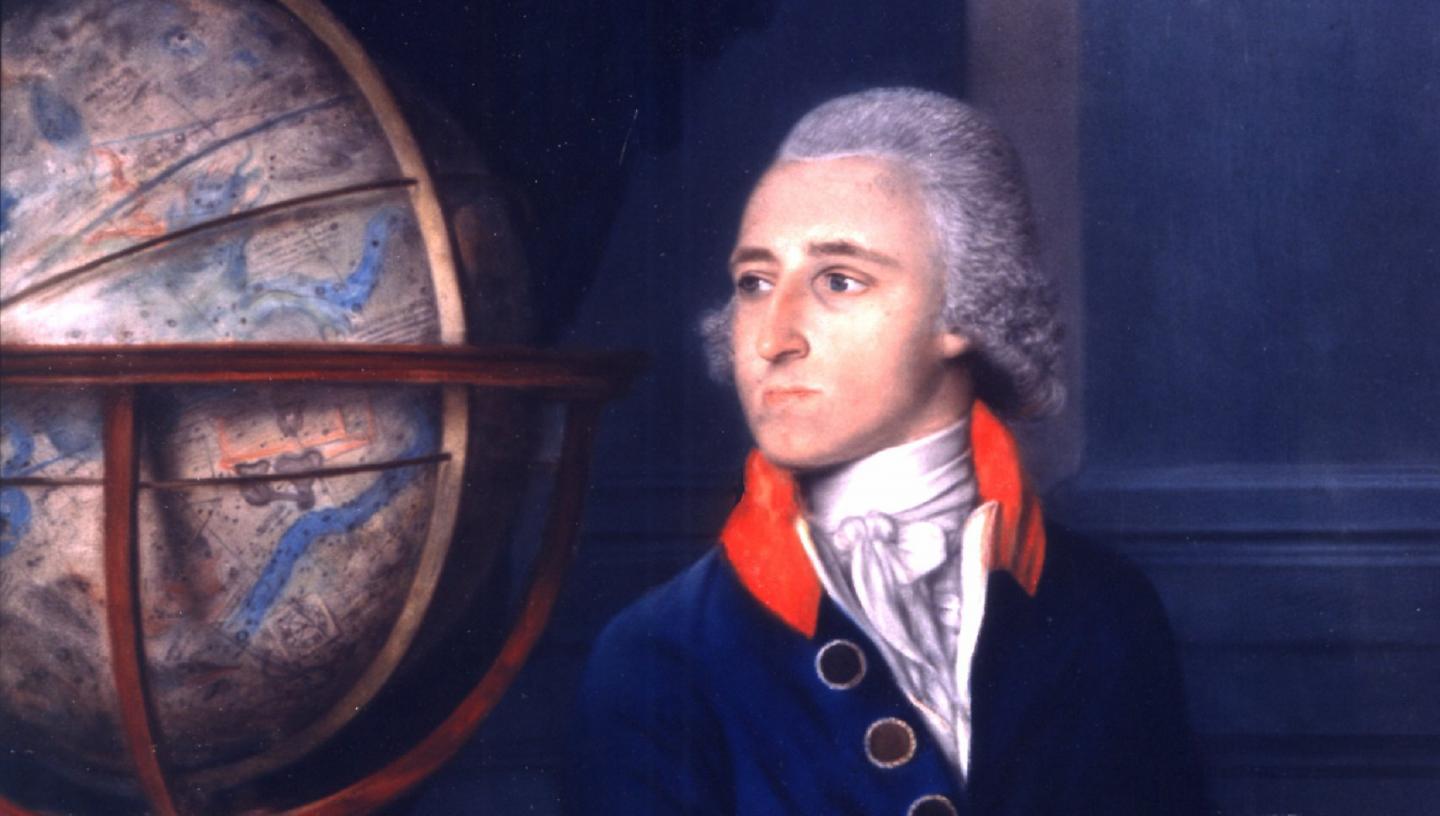
Deaf astronomers John Goodricke and Konstantin Tsiolkowski
John Goodricke and Konstantin Tsiolkowski, both deaf, were among the most remarkably gifted of astronomers.
John Goodricke
Goodricke was born on 17 September 1764 at Groningen in Germany, the son of Henry Goodricke of York and the grandson of Sir John Goodricke of Ribston Hall in Yorkshire. He was pre-lingually deaf, although it is uncertain whether he was born deaf or lost his hearing as the result of fever in his infancy.
Pursuing research in astronomy, he earned his reputation for his investigation of variable stars, for which he was awarded the Copley Medal in 1783.
Variable stars
A small number of stars change noticeably in brightness over a relatively short period, and these are known as variable stars. They come in two types. Intrinsic (or true) variables behave like this because of processes going on in them. Others just appear to vary, and these are known as eclipsing variables, because the effect is caused by one star moving in front of another, temporarily reducing its brightness.
At the age of eighteen, Goodricke demonstrated that Algol (known as the Winking Demon) was in fact an eclipsing variable, the first one to be discovered.
Goodricke presented his findings to the Royal Society in a paper memorably entitled:
A series of observations on and a discovery or the period of variations of the light of the bright star in the head of Medusa, called Algol, and in a supplement On the periods of change in the light in the star Algol.
Aged just 22, he died in York on 20 April 1786, only 14 days after being made a Fellow of the Royal Society.
Konstantin Tsiolkowski 1857–1935
Born the son of a forester near Moscow in 1857, Tsiolkowski lost his hearing as a result of scarlet fever when he was 10 or 11. Subsequently he missed out on schooling, but at the age of sixteen went to Moscow to continue his studies and pursue his interest in astronomy.
Three years later he was appointed to a teaching post in a poor country school, which allowed him time to pursue his work in astronomy. In 1892 he began work on space research, and by 1898 he had come up with ideas on rockets powered by liquid fuel and the provision of oxygen for astronauts.
Tsiolkowski retired in 1920. In 1924 his work on rocket propulsion was recognised as genius. He died at the age of 78 in 1935.
In 1957, a Russian stamp was issued in his honour, and two years later a crater on the Moon was given his name.